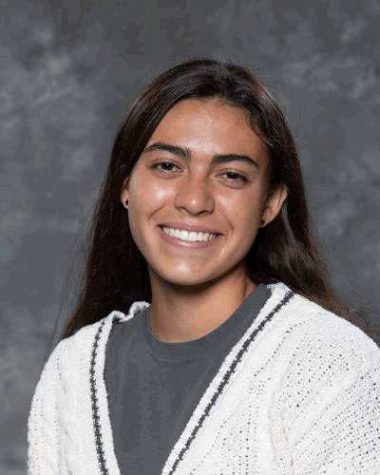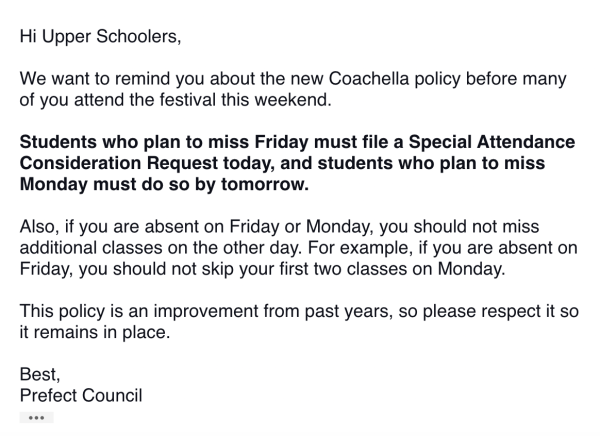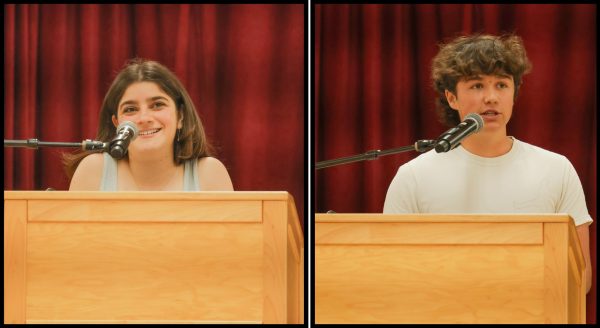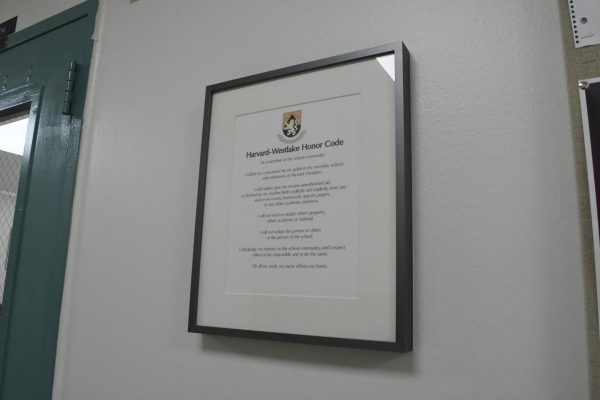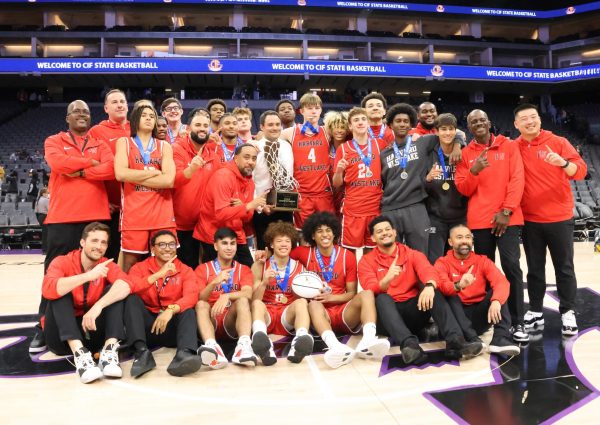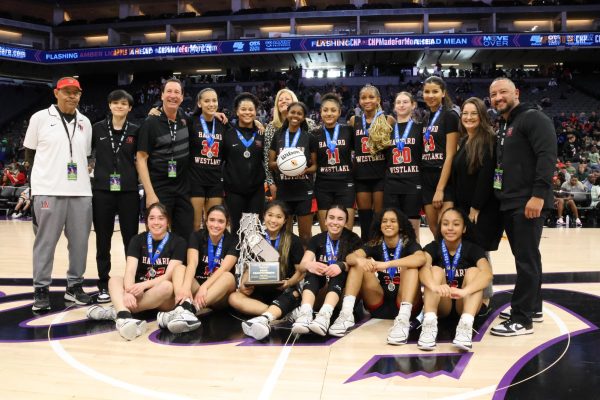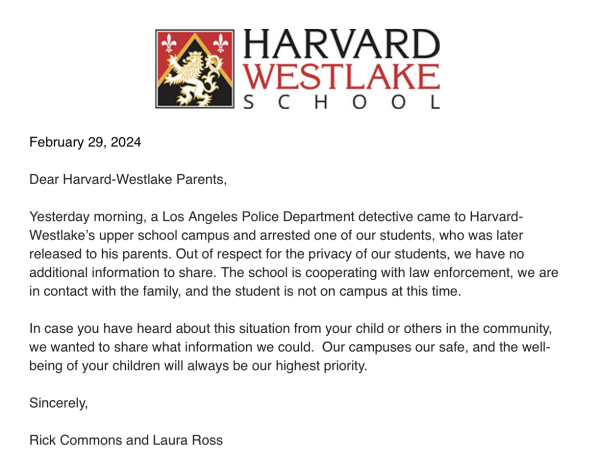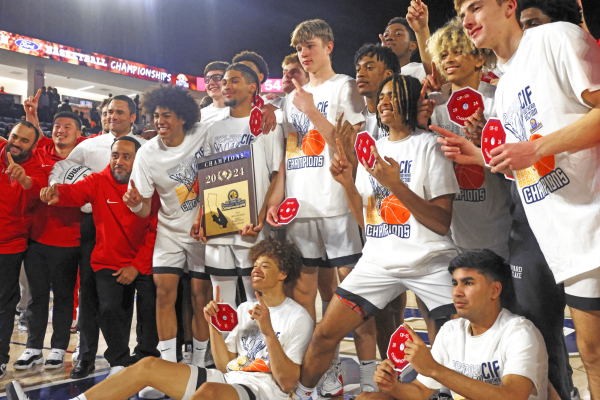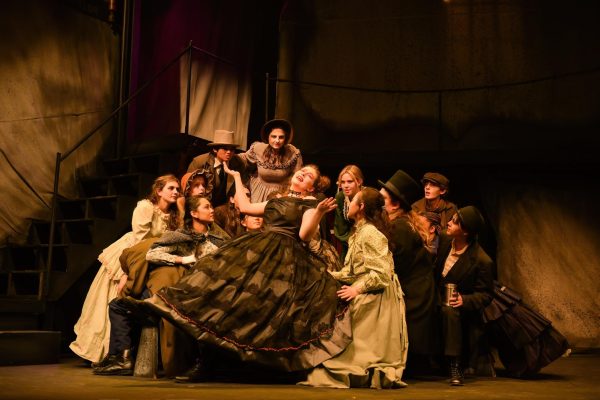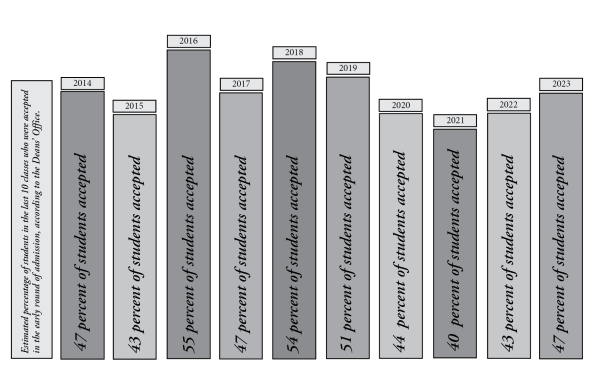Instagram account ‘wokeathw’ critiques school’s revised history curriculum and Anti-Racism plan
October 3, 2021
Instagram account @wokeathw created Sept. 7, 2020, by a group of anonymous community members disapproving of the school’s anti-racism initiatives, uploaded a post critiquing the Upper School History Department’s emphasis on critical race theory (CRT) Oct. 1.
Since its creation, the account has posted 69 testimonials against the school’s policies and curriculum changes, such as the restructuring of the 11th grade U.S. History curriculum.
Harvard professor Derrick Bell developed the academic framework for critical race theory in the mid-1970’s. The framework holds that racism is perpetuated through American institutions rather than beliefs held by certain individuals. Critical race theory suggests that modern-day racism is not an isolated phenomenon. It is ingrained in American history and culture.
Over the past year, the integration of critical race theory into school curriculums across the nation sparked controversy. Many discussions have escalated, attracting federal attention, leading Attorney General Merrick Garland to order the FBI to prevent future threats made toward schools and educators who teach critical race theory Oct. 4, according to the Washington Post,
The account’s most recent post criticizes the Anti-Racism Plan the school released last summer that aimed to prevent racial discrimination on campus.
“While some schools have tried to obfuscate whether Critical Race Theory guides their curriculum, Harvard-Westlake boasts about it,” the account wrote in the post’s caption. “As you can see in the attached excerpt from HW’s ‘Anti-Racism’ manifesto, HW has decided to ‘redesign the 11th grade US History course from a critical race theory perspective.’ Has HW reconsidered this terrible decision in light of the well-deserved national controversy that has erupted over [critical race theory]? Unlikely. We suspect the school will take the ‘full steam ahead’ approach, consistent with its track record of running roughshod over any objections or concerns raised by the community.”
Junior Prefect Simon Lee ’23 said the controversy surrounding critical race theory has made it a trigger word, particularly in the media. He said he attributes this to the lack of information people have about the subject.
Lee said including a broad range of perspectives in discussions about race is perceived as “woke.”
“Framing the debate [in the way that @wokeathw has] is so damaging because it turns the whole conversation as soon as someone incorporates the perspectives of those who are traditionally excluded from history, [such as] people of color, women, LGBT people, etc.” Lee said. “They are pursuing a certain political agenda rather than pushing for a more full and complete narrative of history.”
The founders of @wokeathw declined to comment on the matter.
The original post has since been edited to omit a statement on the Upper School History Department referencing two new teachers hired this school year, Erik Wade and Hijoo Son.
“Unfortunately, the school has doubled down on CRT by hiring two new Upper School history teachers who we understand to be very, very woke,” the account wrote. “Where is the ideological diversity in the Upper School History Department? HW = CRT.”
Wade said the posts that target him and the history department were disheartening and revealed the account owners’ lack of perspective.
“I felt disappointed when they [said] the people who were just hired by the history department were ‘very, very woke’,” Wade said. “It suggests that part of [that statement] is tied to our race and ethnicity [with me] being a Black man and Dr. [Hijoo] Son being Korean American without [the account] even knowing our politics or who we are.”
Fiona Gillearn ’23, a student in Wade’s Advanced Placement U.S. History class, said Wade’s classes are structured as open discussions that address nightly reading assignments introducing multiple historical perspectives and encourage student debate.
“I know my teacher tries to keep a really open environment and is very respectful,” Gillearn said. “He even has a policy called ‘No Cancel Culture.’ So if anyone ever raises a different perspective, or tries to see something from a different point of view, no one in the class would be disrespectful.”
Wade said he strives to foster a classroom environment that makes students feel comfortable while sharing and analyzing different perspectives.
“I want [students to know] that [their ideas add] value to the conversations we’re trying to hold,” Wade said. “I know some students feel like [their opinions] are going to be shut down, but I don’t want my class to be a space in that way. Now, if [what students bring up is] problematic, I’m going to shut that down. But if it’s adding to the conversation, I want everybody to jump in.”
In response to the post questioning the ideological diversity of the History Department, Head of Upper School Beth Slattery said the school does not factor in a candidate’s political views in the hiring process as the school strives for impartiality in the classroom.
“History is not objective,” Slattery said. “There’s no way to be completely apolitical, but I [have] never and I’m not going to start asking people to identify themselves with a [political] party just to make sure we have ideological diversity, because their ideological diversity shouldn’t have a huge place in the classroom. I couldn’t even tell you the political leanings of all of my faculty.”
Slattery said the work of upper school history teachers in expanding inclusivity within their curriculum successfully reflects the school’s values.
“I’m incredibly proud of the way our history department has [revised the curriculum] to honor all of our students,” Slattery said. “This is about making sure all students feel known and seen, both in the curriculum and in the classroom. I would make the argument that many more of our students feel a sense of belonging at our school based on changes that we’ve made, compared to when I began here and we weren’t talking about these [issues].”




































